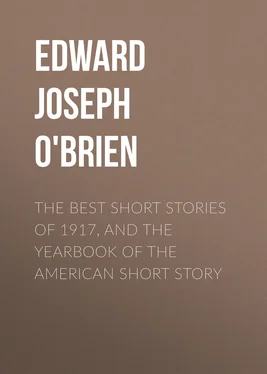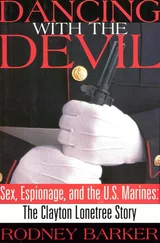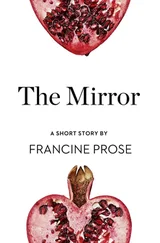Edward O'Brien - The Best Short Stories of 1917, and the Yearbook of the American Short Story
Здесь есть возможность читать онлайн «Edward O'Brien - The Best Short Stories of 1917, and the Yearbook of the American Short Story» — ознакомительный отрывок электронной книги совершенно бесплатно, а после прочтения отрывка купить полную версию. В некоторых случаях можно слушать аудио, скачать через торрент в формате fb2 и присутствует краткое содержание. Издательство: Иностранный паблик, Жанр: foreign_prose, literature_20, foreign_antique, на английском языке. Описание произведения, (предисловие) а так же отзывы посетителей доступны на портале библиотеки ЛибКат.
- Название:The Best Short Stories of 1917, and the Yearbook of the American Short Story
- Автор:
- Издательство:Иностранный паблик
- Жанр:
- Год:неизвестен
- ISBN:нет данных
- Рейтинг книги:3 / 5. Голосов: 1
-
Избранное:Добавить в избранное
- Отзывы:
-
Ваша оценка:
- 60
- 1
- 2
- 3
- 4
- 5
The Best Short Stories of 1917, and the Yearbook of the American Short Story: краткое содержание, описание и аннотация
Предлагаем к чтению аннотацию, описание, краткое содержание или предисловие (зависит от того, что написал сам автор книги «The Best Short Stories of 1917, and the Yearbook of the American Short Story»). Если вы не нашли необходимую информацию о книге — напишите в комментариях, мы постараемся отыскать её.
The Best Short Stories of 1917, and the Yearbook of the American Short Story — читать онлайн ознакомительный отрывок
Ниже представлен текст книги, разбитый по страницам. Система сохранения места последней прочитанной страницы, позволяет с удобством читать онлайн бесплатно книгу «The Best Short Stories of 1917, and the Yearbook of the American Short Story», без необходимости каждый раз заново искать на чём Вы остановились. Поставьте закладку, и сможете в любой момент перейти на страницу, на которой закончили чтение.
Интервал:
Закладка:
As it turned out, the destination of this preposterous procession was Bradshaw's Grove, where the entire party spent the day picnicking in the woods and, as reported by several reliable witnesses, playing games. It was not so strange that holidaying boys should play games; the amazing feature of the performance was that Peep O'Day, a man old enough to be grandfather to any of them, played with them, being by turns an Indian chief, a robber baron, and the driver of a stagecoach attacked by Wild Western desperadoes.
When he returned to town at dusk, drawing his little red wagon behind him, his new suit was rumpled into many wrinkles and marked by dust and grass stains; his flame-colored tie was twisted under one ear; his new straw hat was mashed quite out of shape; and in his eyes was a light that sundry citizens, on meeting him, could only interpret for a spark struck from inner fires of madness.
Days that came after this, on through the midsummer, were, with variations, but repetitions of the day I have just described. Each morning Peep O'Day would go to either the courthouse or Judge Priest's home to turn over to the Judge the unopened mail which had been delivered to him at Gafford's stables; then he would secure from the Judge a loan of money against his inheritance. Generally the amount of his daily borrowing was a dollar; rarely was it so much as two dollars; and only once was it more than two dollars.
By nightfall the sum would have been expended upon perfectly useless and absolutely childish devices. It might be that he would buy toy pistols and paper caps for himself and his following of urchins; or that his whim would lead him to expend all the money in tin flutes. In one case the group he so incongruously headed would be for that one day a gang of make-believe banditti; in another, they would constitute themselves a fife-and-drum corps—with barreltops for the drums—and would march through the streets, where scandalized adults stood in their tracks to watch them go by, they all the while making weird sounds, which with them passed for music.
Or again, the available cash resources would be invested in provender; and then there would be an outing in the woods. Under Peep O'Day's captaincy his chosen band of youngsters picked dewberries; they went swimming together in Guthrie's Gravel Pit, out by the old Fair Grounds, where his spare naked shanks contrasted strongly with their plump freckled legs as all of them splashed through the shallows, making for deep water. Under his leadership they stole watermelons from Mr. Dick Bell's patch, afterward eating their spoils in thickets of grapevines along the banks of Perkins' Creek.
It was felt that mental befuddlement and mortal folly could reach no greater heights—or no lower depths—than on a certain hour of a certain day, along toward the end of August, when O'Day came forth from his quarters in Gafford's stables, wearing a pair of boots that M. Biederman's establishment had turned out to his order and his measure—not such boots as a sensible man might be expected to wear, but boots that were exaggerated and monstrous counterfeits of the red-topped, scroll-fronted, brass-toed, stub-heeled, squeaky-soled bootees that small boys of an earlier generation possessed.
Very proudly and seemingly unconscious of, or, at least, oblivious to, the derisive remarks that the appearance of these new belongings drew from many persons, the owner went clumping about in them, with the rumply legs of his trousers tucked down in them, and ballooning up and out over the tops in folds which overlapped from his knee joints halfway down his attenuated calves.
As Deputy Sheriff Quarles said, the combination was a sight fit to make a horse laugh. It may be that small boys have a lesser sense of humor than horses have, for certainly the boys who were the old man's invariable shadows did not laugh at him, or at his boots either. Between the whiskered senior and his small comrades there existed a freemasonry that made them all sense a thing beyond the ken of most of their elders. Perhaps this was because the elders, being blind in their superior wisdom, saw neither this thing nor the communion that flourished. They saw only the farcical joke. But His Honor, Judge Priest, to cite a conspicuous exception, seemed not to see the lamentable comedy of it.
Indeed, it seemed to some almost as if Judge Priest were aiding and abetting the befogged O'Day in his demented enterprises, his peculiar excursions and his weird purchases. If he did not actually encourage him in these constant exhibitions of witlessness, certainly there were no evidences available to show that he sought to dissuade O'Day from his strange course.
At the end of a fortnight one citizen, in whom patience had ceased to be a virtue and to whose nature long-continued silence on any public topic was intolerable, felt it his duty to speak to the Judge upon the subject. This gentleman—his name was S. P. Escott—held, with many, that, for the good name of the community, steps should be taken to abate the infantile, futile activities of the besotted legatee.
Afterward Mr. Escott, giving a partial account of the conversation with Judge Priest to certain of his friends, showed unfeigned annoyance at the outcome.
"I claim that old man's not fittin' to be runnin' a court any longer," he stated bitterly. "He's too old and peevish—that's what ails him! For one, I'm certainly not never goin' to vote fur him again. Why, it's gettin' to be ez much ez a man's life is worth to stop that there spiteful old crank in the street and put a civil question to him—that's whut's the matter!"
"What happened S. P.?" inquired some one.
"Why, here's what happened!" exclaimed the aggrieved Mr. Escott. "I hadn't any more than started in to tell him the whole town was talkin' about the way that daffy Old Peep O'Day was carryin' on, and that somethin' had oughter be done about it, and didn't he think it was beholdin' on him ez circuit judge to do somethin' right away, sech ez havin' O'Day tuck up and tried fur a lunatic, and that I fur one was ready and willin' to testify to the crazy things I'd seen done with my own eyes—when he cut in on me and jest ez good ez told me to my own face that ef I'd quit tendin' to other people's business I'd mebbe have more business of my own to tend to.
"Think of that, gentlemen! A circuit judge bemeanin' a citizen and a taxpayer"—he checked himself slightly—"anyhow, a citizen, thataway! It shows he can't be rational his ownself. Personally I claim Old Priest is failin' mentally—he must be! And ef anybody kin be found to run against him at the next election you gentlemen jest watch and see who gits my vote!"
Having uttered this threat with deep and significant emphasis Mr. Escott, still muttering, turned and entered the front gate of his boarding house. It was not exactly his boarding house; his wife ran it. But Mr. Escott lived there and voted from there.
But the apogee of Peep O'Day's carnival of weird vagaries of deportment came at the end of two months—two months in which each day the man furnished cumulative and piled-up material for derisive and jocular comment on the part of a very considerable proportion of his fellow townsmen.
Three occurrences of a widely dissimilar nature, yet all closely interrelated to the main issue, marked the climax of the man's new rôle in his new career. The first of these was the arrival of his legacy; the second was a one-ring circus; and the third and last was a nephew.
In the form of sundry bills of exchange the estate left by the late Daniel O'Day, of the town of Kilmare, in the island of Ireland, was on a certain afternoon delivered over into Judge Priest's hands, and by him, in turn, handed to the rightful owner, after which sundry indebtednesses, representing the total of the old Judge's day-to-day cash advances to O'Day, were liquidated.
Читать дальшеИнтервал:
Закладка:
Похожие книги на «The Best Short Stories of 1917, and the Yearbook of the American Short Story»
Представляем Вашему вниманию похожие книги на «The Best Short Stories of 1917, and the Yearbook of the American Short Story» списком для выбора. Мы отобрали схожую по названию и смыслу литературу в надежде предоставить читателям больше вариантов отыскать новые, интересные, ещё непрочитанные произведения.
Обсуждение, отзывы о книге «The Best Short Stories of 1917, and the Yearbook of the American Short Story» и просто собственные мнения читателей. Оставьте ваши комментарии, напишите, что Вы думаете о произведении, его смысле или главных героях. Укажите что конкретно понравилось, а что нет, и почему Вы так считаете.












